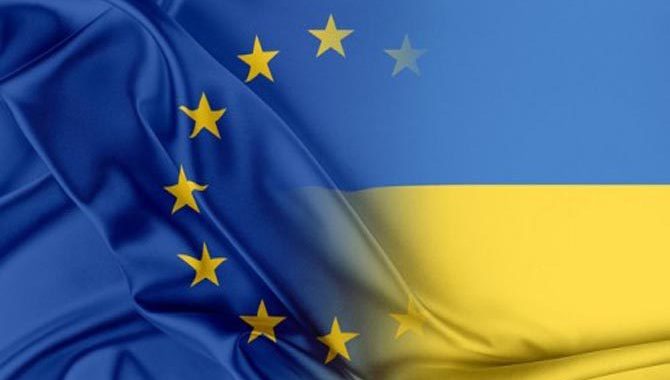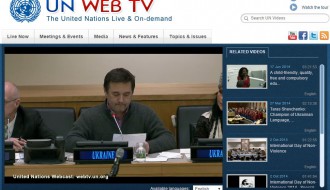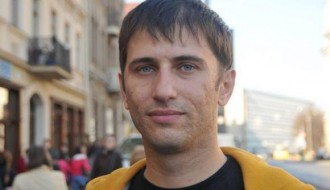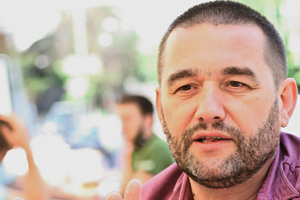Noting the importance of Ukraine’s European integration and supporting efforts to start negotiations on Ukraine’s EU membership as soon as possible,
we, representatives of Ukrainian civic organizations and movements, consider it necessary to draw the attention of the Ukrainian authorities to the inadmissibility of carrying out any actions aimed at revising the language legislation and weakening the mechanisms for the protection of the state language under the pretext of European integration.
We are convinced that Ukraine has fulfilled all 7 prerequisites necessary for opening negotiations on EU membership. We believe that the European Commission’s demand for Ukraine to additionally change the legislation on national minorities, as well as the laws on the state language, education and media, is unjustified and far-fetched.
The rights of national minorities were and are guaranteed in Ukraine. The new law “On National Minorities (Communities) of Ukraine” adopted in 2022 is based on European and international agreements ratified by Ukraine and which, in accordance with Article 9 of the Constitution, are also an integral part of national legislation. Moreover, in September 2023, Ukraine made additional changes to this law, which received a positive assessment from European partners.
We see substitution of concepts and dangerous attempts to artificially contrast the protection of the Ukrainian language as a state with the rights of national minorities in order to create an excuse to put pressure on Ukraine and put forward obviously unacceptable demands.
Behind these attempts are forces that coordinate their destructive actions with the criminal power of russia – putin’s regime, which is waging a genocidal war against Ukraine and is the existential enemy of the EU and the greatest threat to all of Europe. First of all, we are talking about the government of Hungary headed by Viktor Orbán, as well as the protégé of the Hungarian government, European Commissioner for Neighborhood and Enlargement Oliver Varhelyi, who supports the efforts of Moscow and Budapest to prevent Ukraine’s integration into the EU.
It is obvious that this year’s biased conclusions of the Venice Commission also played a destructive role, in which this once authoritative body went far beyond the scope of the subject of consideration – the law on national minorities – and approved frankly absurd recommendations for changes in the laws on language, education and media
Unfortunately, the Ukrainian negotiators failed to convince not only the Venice Commission, but also the European Commission, which refers to these recommendations, of the illogicality and inadmissibility of these recommendations.
We understand the need to align Ukrainian legislation with EU values and law and support the legislative changes necessary for this. However, all EU demands on Ukraine and assessments of progress in their implementation should be based on real facts, and not on insinuations imposed from Moscow or Budapest.
Ukraine’s fulfillment of any demands based on such insinuations is a road to nowhere that threatens the foundations of the constitutional order, national unity and security of Ukraine.
We are convinced that any actions of the Ukrainian authorities and any communication with EU representatives should be conducted taking into account the following fundamental positions:
- The revision of the Law “On Ensuring the Functioning of the Ukrainian Language as a State Language” is unacceptable. The purpose of this law is to protect the right of every citizen of Ukraine to receive information and services in the state language. The issue of the rights of national minorities is not regulated by the law on language. The languages of national minorities are mentioned only in those provisions that emphasize the right to use these languages or contain a reference to a specific law on national minorities, and never in the context of prohibitions or restrictions. Therefore, attempts to demand a revision of the language law under the pretext of protecting minority languages are absurd and actually directed against the Ukrainian language as one of the foundations of national unity. The Constitution of Ukraine and the decision of the Constitutional Court of July 14, 2021, which has the same legal force as the provisions of the Constitution, oblige the state to ensure the comprehensive development and functioning of the Ukrainian language in all spheres of public life throughout Ukraine and prohibit narrowing the scope of its application. The establishment of the Ukrainian language is an integral part of our civilizational choice, Ukraine’s course towards European integration and liberation from the influence of the “russkiy world”. Attacks on the Ukrainian language and the law that protects it harm both the citizens of Ukraine of all nationalities and the European Union and benefit exclusively the Russian aggressors.
- It is time to put an end to the endless concessions in the language norms of educational legislation and to clearly refute the myths about the oppression of children from Hungarian or other national minorities in Ukrainian schools. In recent years, Ukraine has made enormous concessions and provided in the Law “On Comprehensive General Secondary Education” the opportunity for representatives of national minorities to study in the languages of these minorities (which are the languages of the EU) for most of the school year. According to Article 5 of this law, education in grades 1-4 can be almost entirely in the language of the minority, in grade 5 the Ukrainian language should make up 20% of the annual amount of study time, by grade 9 it gradually increases to 40% and only in grades 10-12 it increases up to 60%. Thus, 70% of the time students can study in the minority language and only 30% in Ukrainian. In general, private schools can teach in any language. The claim that because of such legislative norms, representatives of, for example, the Hungarian minority will have a poor command of the Hungarian language, is nonsense. On the contrary, the problem lies in the extremely poor command of the Ukrainian language by these children. Attempts to reduce the share of subjects to be taught in Ukrainian are not aimed at protecting the minority language, which children know well, but at depriving them of the opportunity to fully master the Ukrainian language and, as a result, the opportunity to obtain higher education and make a successful career in Ukraine.
- The revision of the language norms of the law “On Media” is also unacceptable, especially since this law has been meticulously analyzed and highly appreciated by EU representatives. Its adoption was listed as a separate item in the list of 7 prerequisites for the start of negotiations on Ukraine’s accession to the EU, and the European Commission itself noted that Ukraine has successfully fulfilled this item. The law provides ample opportunities for the use of EU languages in the media, and the mechanisms provided for by it to protect the Ukrainian information space from Russia’s destructive attacks are important for the security of all Ukrainian citizens, regardless of their ethnic origin.
- National communities of Ukraine support the earliest possible start of negotiations on Ukraine’s accession to the EU, as does civil society as a whole. Representatives of national minority organizations, with the exception of those under significant external influence (primarily Moscow and Budapest), do not share the claims that Ukrainian laws violate their national rights. It is important that representatives of the authorities, national communities, and other civil society institutions jointly defend this position in communications with European partners.
The Ukrainian side must clearly and reasonably communicate the above-mentioned positions to its European partners and, together with EU representatives, develop effective mechanisms for countering pressure from forces that, in the interests of russia, seek to destroy European unity from within.
We are convinced that an honest policy, a clear and consistent position will help to reach an understanding and bring our European future closer.
Taras Shamayda, “Space of Freedom” movement
Anastasia Rozlutska, NGO “Ukrainian World”
Hanna Hopko, ANTS – National Interests Advocacy Network
Serhiy Osnach, “Boycott of russian Cinema” initiative
Svyatoslav Litynskyi, NGO “Nezalezhni”
Ivanna Kobielieva, Language Policy Portal
Taras Marusyk, language policy expert, maintenance of NSPU translators
Roman Matys, the initiative to protect the rights of Ukrainian-speakers “I tak poymut!”
Oleg Slabospytskyi, Public sector of Euromaidan
Maksym Latsyba, Ukrainian Independent Center for Political Studies
Kateryna Chepura, Civil Movement “Vidsich”
Natalka Fedechko, All-Ukrainian movement “Edyni”
Maksym Kobieliev, “Drigdgy” initiative
Tetyana Shvydchenko, NGO “Expertny Corps”



